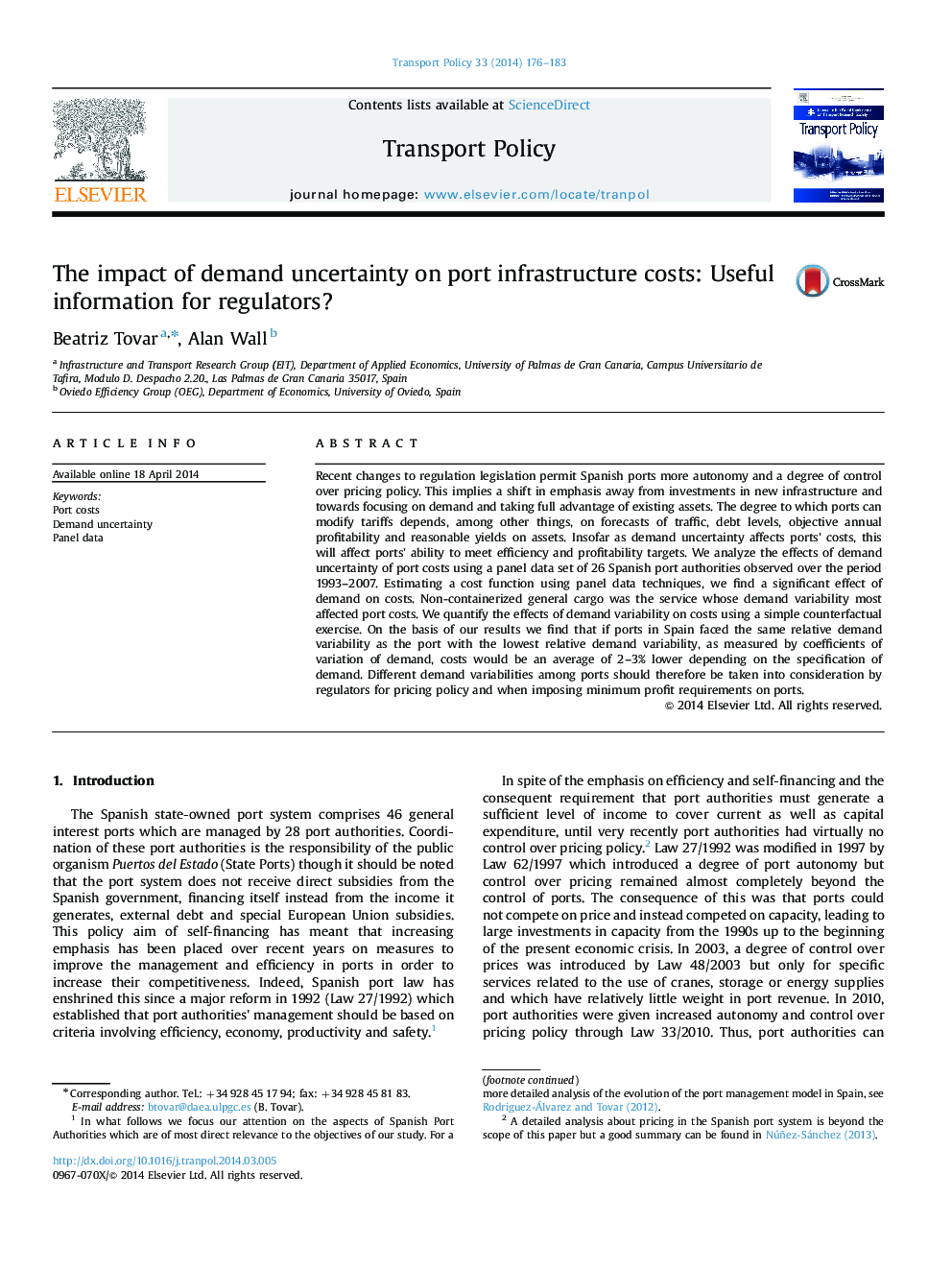| Article ID | Journal | Published Year | Pages | File Type |
|---|---|---|---|---|
| 1064848 | Transport Policy | 2014 | 8 Pages |
•New Spanish legislation gives ports more freedom over pricing policy.•Widely differing demand variabilities across Spanish port authorities.•Port authorities׳ costs affected by differences in demand uncertainty.•Danger that high-variability ports may be penalized unfairly by regulators.
Recent changes to regulation legislation permit Spanish ports more autonomy and a degree of control over pricing policy. This implies a shift in emphasis away from investments in new infrastructure and towards focusing on demand and taking full advantage of existing assets. The degree to which ports can modify tariffs depends, among other things, on forecasts of traffic, debt levels, objective annual profitability and reasonable yields on assets. Insofar as demand uncertainty affects ports׳ costs, this will affect ports׳ ability to meet efficiency and profitability targets. We analyze the effects of demand uncertainty of port costs using a panel data set of 26 Spanish port authorities observed over the period 1993–2007. Estimating a cost function using panel data techniques, we find a significant effect of demand on costs. Non-containerized general cargo was the service whose demand variability most affected port costs. We quantify the effects of demand variability on costs using a simple counterfactual exercise. On the basis of our results we find that if ports in Spain faced the same relative demand variability as the port with the lowest relative demand variability, as measured by coefficients of variation of demand, costs would be an average of 2–3% lower depending on the specification of demand. Different demand variabilities among ports should therefore be taken into consideration by regulators for pricing policy and when imposing minimum profit requirements on ports.
